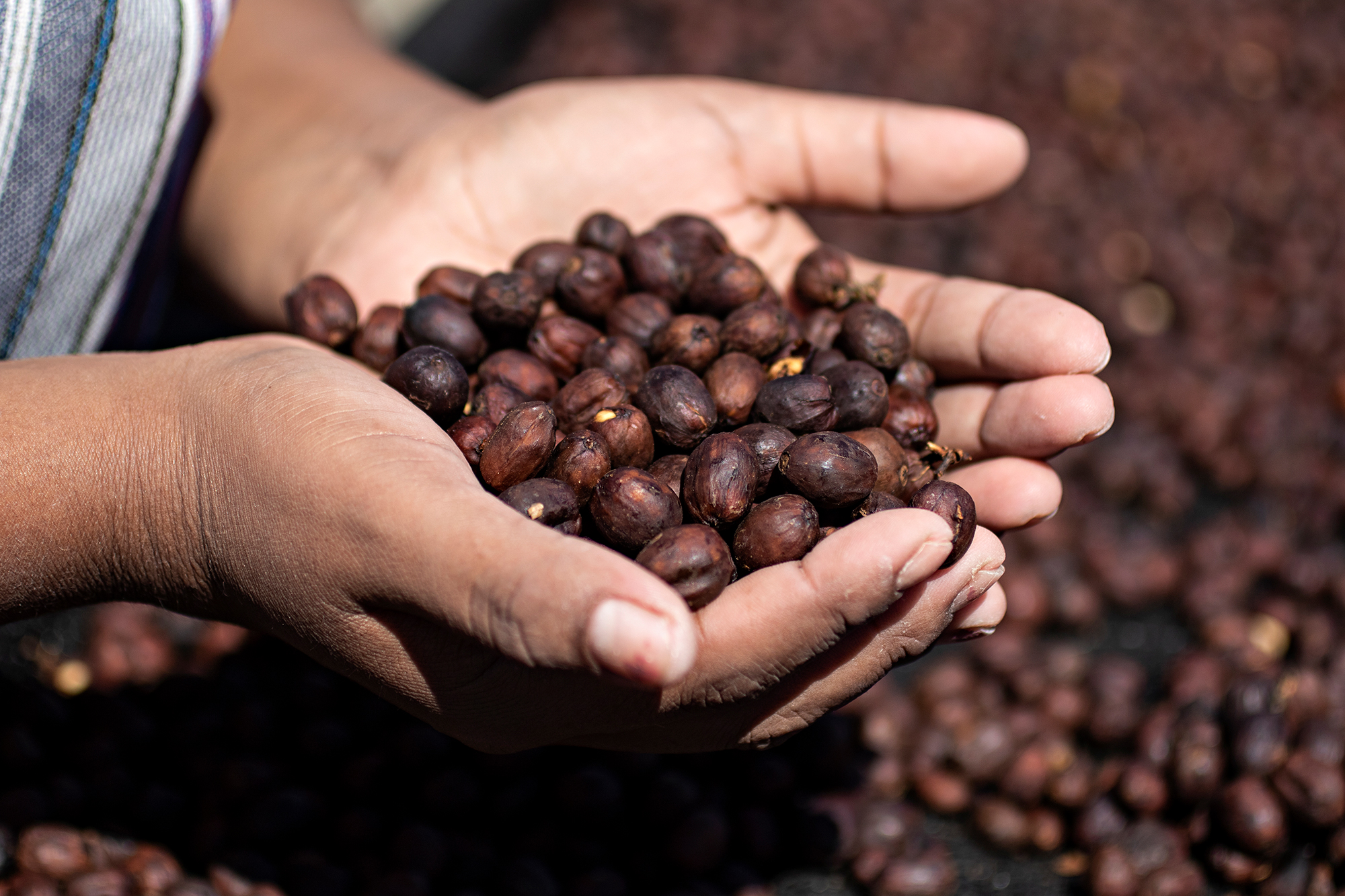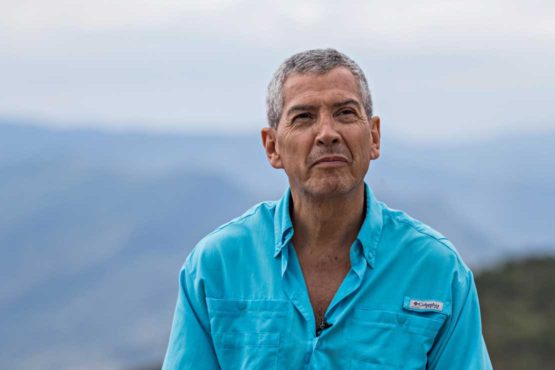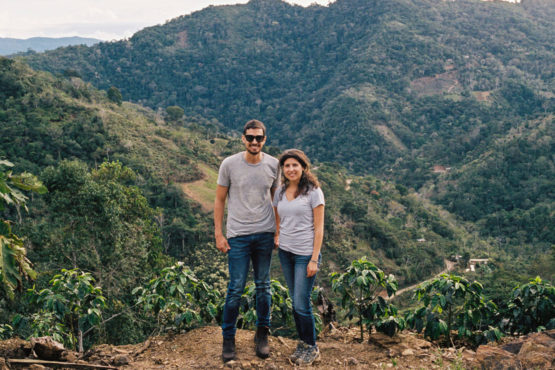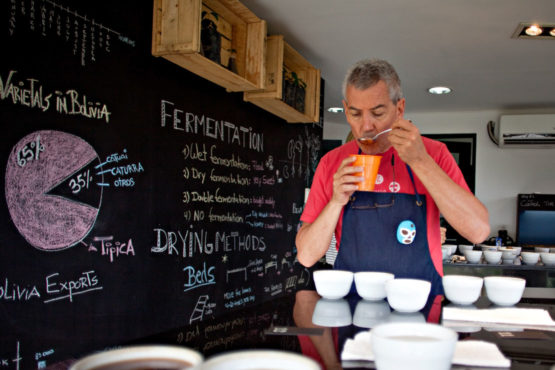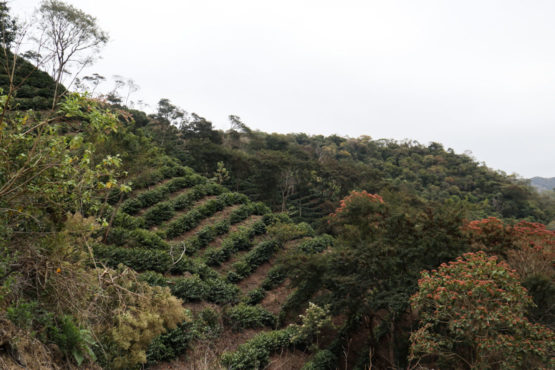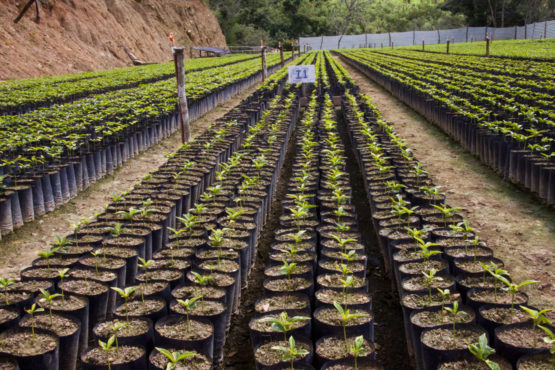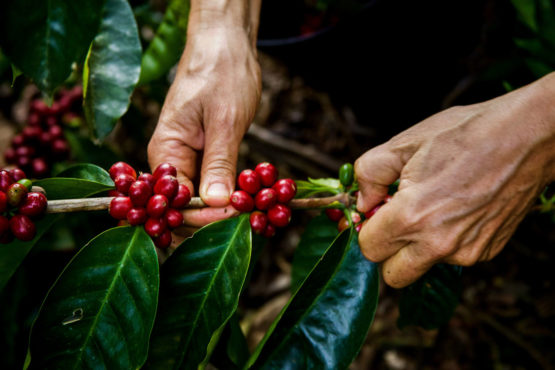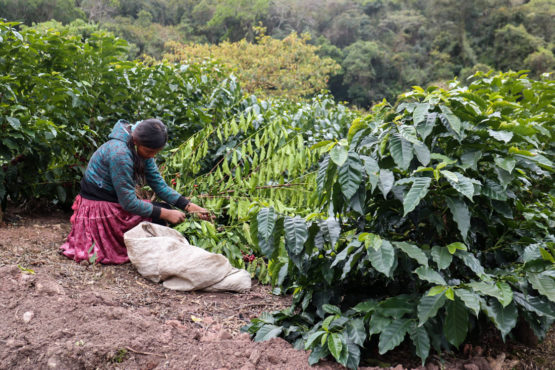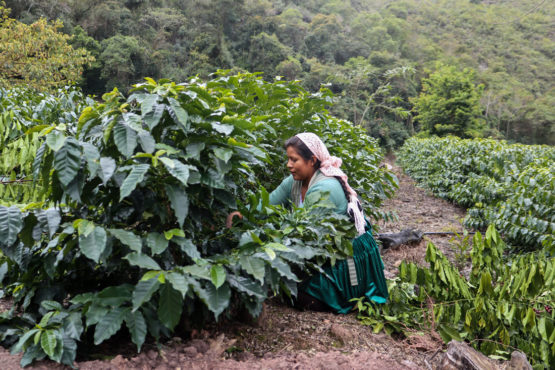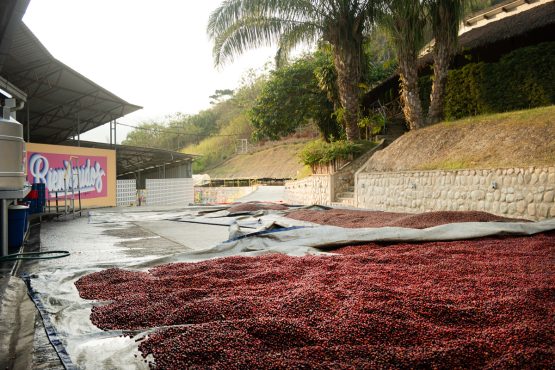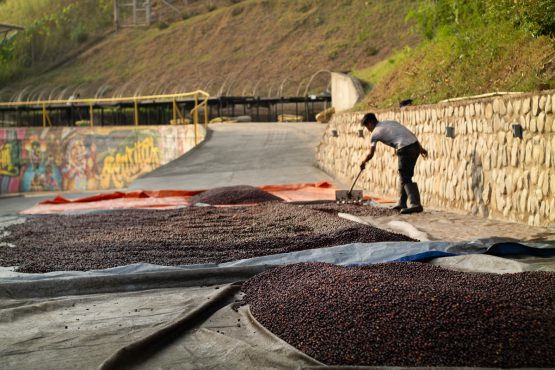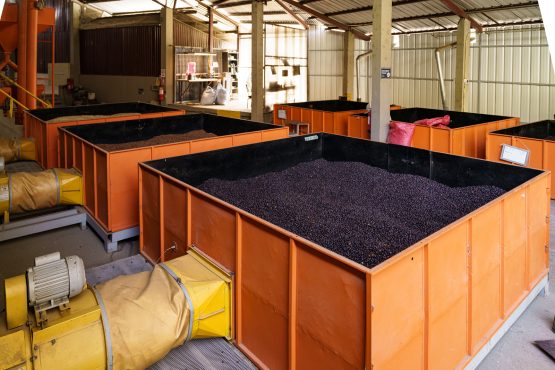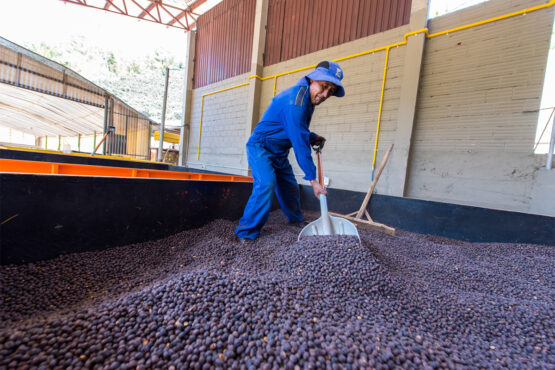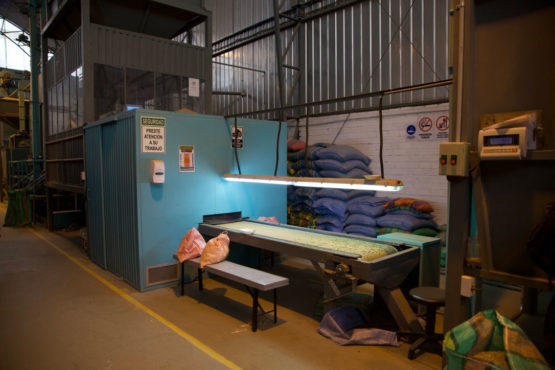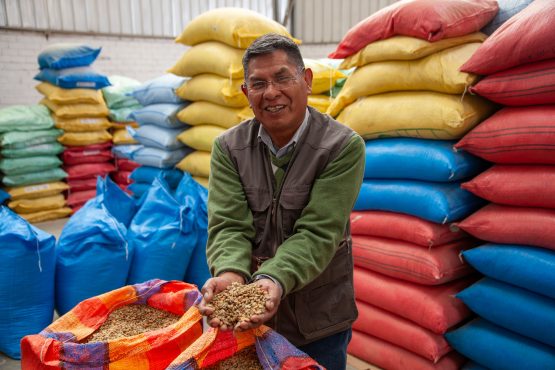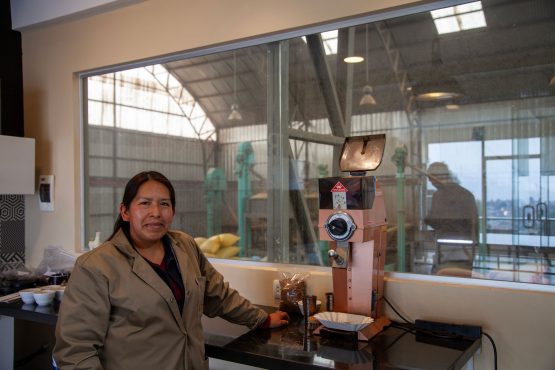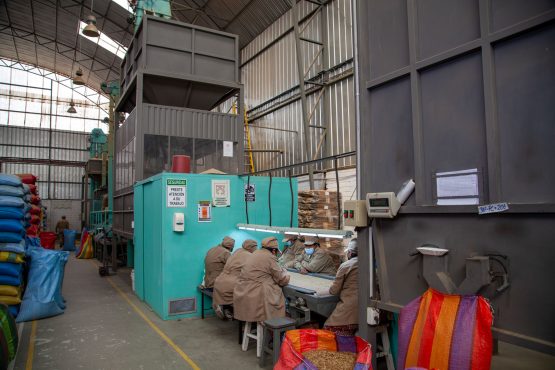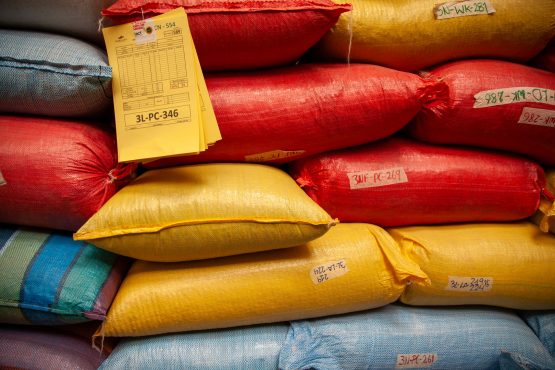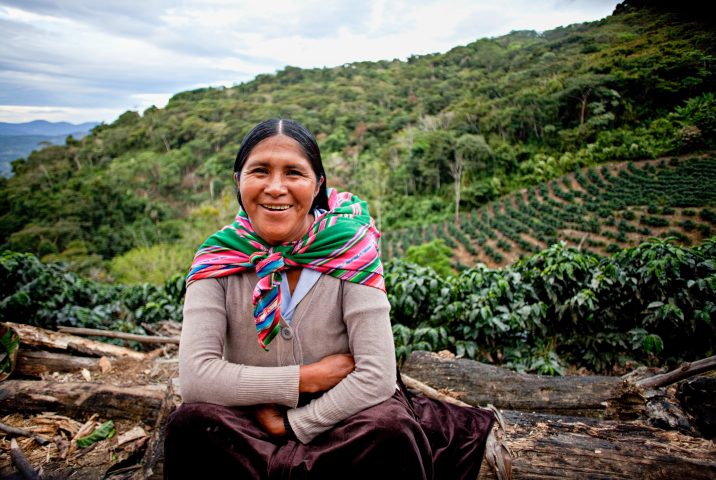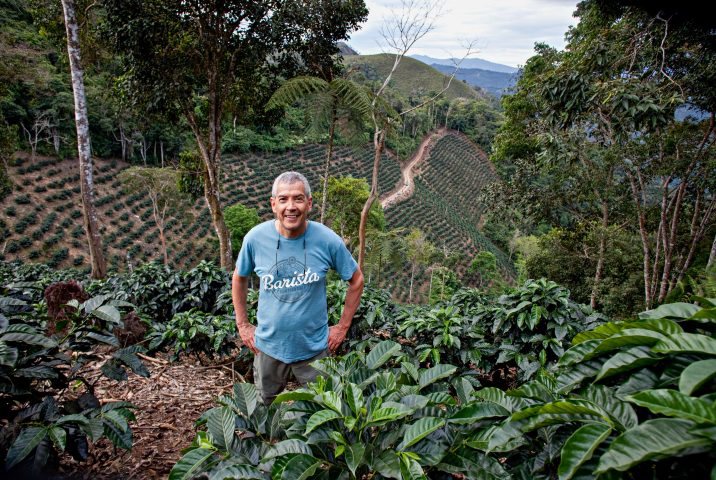Floripondio SL28 Coco Natural
Fruit forward and distinct, with great structure and clarity. Cherry cola and cassis, with a silky texture.
This 100% SL28 microlot comes from Floripondio, one of five farms owned and operated by the Rodríguez family in Bolivia’s Samaipata region.
Samaipata is a relatively new coffee growing region located in the eastern department of Santa Cruz, at the foot of the Bolivian Andes. The Rodríguez family, who also own the exporting business Agricafe Bolivia, first established their business in the traditional coffee growing region of Caranavi, where they currently operate eight farms and a wet mill. In 2012 they expanded to the region of Samaipata, which is historically known for producing food crops like fruit and vegetables.
This was risky move – coffee had never been planted here before – but Pedro recognised the region had the right conditions to produce exceptional quality coffee, with high elevations, nutrient-rich soil and a similar climate to Caranavi’s (with the main difference being that Samaipata is a little less tropical and drier). After their success in growing exceptional coffee at their first farm in the region, El Fuerte, the Rodríguez family have continued investing more heavily in Samaipata, planting three more farms, including Floripondio in 2014, and building a wet mill to process the coffees grown here.
Samaipata means ‘Rest of the Heights’, and is a small, picturesque town. A scenic road that runs along a beautiful river leads to the town centre, attracting Bolivians and tourists alike. The valley surrounding the town ranges between 1,600-1,800 meters above sea level, and has a fairly extreme climate. During the day the temperature is 25-30°C, dropping to as low as to 8-10°C during the night. This slows down the ripening of the coffee cherries, allowing the sugars of the fruit to concentrate in the flesh and bean, which in turn helps produce an incredibly sweet and complex coffee.
This 47 hectare farm (29 of which are planted with coffee) is found at a staggering 1,710 meters above sea level. It has two breathtaking viewpoints: one over the spectacular Andes mountain ranges , and another over the Amboró National Park, which is considered as having some of the world’s greatest biodiversity of flora and fauna. This protected park park is located west of the department of Santa Cruz, in the so-called “Codo de los Andes”, where the western mountain range changes course to the south.
Floripondio’s high elevation, tropical microclimate and distinct soil profile, made it the ideal place for the Rodríguez family to establish their variety nursery. To date, they have planted and trialled over 50 varieties at the farm, with the objective to work out which are best suited to the land and this particular latitude and elevation. Lemon and tangerine trees separate each of the varieties planted, and the fruit is sold at the local markets. This particular lot is 100% SL-28.
Originally developed at Kenya’s Scott Agricultural Laboratories (now the National Agricultural Laboratories, NARL) in the 1930s, SL28 is one of the most well-known and acclaimed hybrid varieties to come out of Africa. It was selected from a tree population found in the Tanganyika Territory (now part of Tanzania) that appeared to be tolerant to drought. Further research confirmed this, as well as the tree’s potential for exceptional cup quality at medium to high altitudes, and it was subsequently planted extensively throughout Kenya, Uganda, Malawi and Zimbabwe. Genetic tests eventually indicated that SL28 is related to the Bourbon family, unlike “sister” variety SL34, which is of Typica lineage. Another point of difference between both varieties is SL28’s longevity and fortitude, as it can be left untended for years or even decades at a time, and then return to successful production. There are SL28 trees in many parts of Kenya that are 60-80 years old and still productive!
The family’s learnings have also been shared with local producers through a training program they has developed called ‘Sol de la Mañana.’ Head here to learn more about this wonderful program, and here to learn more about the incredible work the Rodríguez family and Agricafe are doing in Bolivia.
Floripondio gets its name from the Floripondio flowers (commonly known as Angel’s Trumpet in English) that are native to the area and grow throughout the farm. The flower is thought to possess some hallucinogenic properties, and legend has it that as soon as you lay down beneath a Floripondio tree you start dreaming. This is apt, as the natural scenery at Floripondio is breathtakingly beautiful and can at times, seem like something out of a dream.
HOW THIS COFFEE WAS PROCESSED
Pickers from the Samaipata community carefully handpick the coffee at Floripondio every day during the harvest. These pickers have been trained to select only the very ripest cherries and pass through the farm every day to ensure cherries are only picked at their prime.
This coffee was carefully picked and processed on the same day at the Rodríguez family’s wet mill located at one of their nearby farms, El Fuerte. Pedro draws a lot of inspiration from the wine industry in his approach to coffee production, and is always innovating and trialling different processing techniques. This lot was processed with experimental techniques, part of the Rodriguez’ family’s long term strategy to achieve the greatest distinction and diversity in their special lots. As Pedro’s daughter, Daniela shares:
“We’re keeping a registry of all the data we’re compiling, to use in the coming seasons. It includes information on the types of tanks used, bacteria and yeast activity, ambient temperature and weather conditions… we’re working hard to identify the ideal processing conditions for each variety and farm.”
Cherries for this lot were delivered to Agricafe’s state of the art mill El Fuerte in the evening. After being inspected and weighed, the coffee cherry was carefully sorted by weight using water, and floaters were removed. Following this, the coffee was disinfected, in a similar process used for wine grapes. It was then carefully washed and laid out to dry on patio for 48-72 hours, before being placed in one of Buena Vista’s ‘stationary box’ (or coco) dryers, until it reached 11.5% humidity.
These boxes are series of steel containers that are typically used for drying cocoa pods. They use a gentle flow of warm air from below the coffee bed to dry the parchment slowly and evenly. Coffee was stirred manually at regular intervals to further ensure it dried at a uniform rate.
Once the coffee was dry, it was transported to La Paz where it was rested before being milled at Agricafe’s dry mill, La Luna. At this state-of-the-art mill the coffee was first hulled and sorted using machinery, and then by a team of workers who meticulously sorted the coffee by hand under UV and natural light. The mill is one of the cleanest and most impressive we have seen – you can read more about it here.
